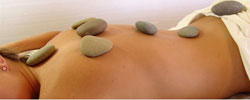|
|
Coping With Chronic Pain In And Out of the Bedroom
 Depressed and frustrated, Alicia rolls onto her side after turning down her
husband's request for sex again. He thinks she's retreating from him, but she
knows it's the pain in her hip that erupts whenever she and Joe have sex. At 40
years old, Alicia doesn't consider herself a candidate for arthritis, yet
something is causing her pain - so much that she frequently uses the old
"headache excuse" to avoid sex. Depressed and frustrated, Alicia rolls onto her side after turning down her
husband's request for sex again. He thinks she's retreating from him, but she
knows it's the pain in her hip that erupts whenever she and Joe have sex. At 40
years old, Alicia doesn't consider herself a candidate for arthritis, yet
something is causing her pain - so much that she frequently uses the old
"headache excuse" to avoid sex.
For the 26 million women in this country who have arthritis, this scenario might
not be unfamiliar. Engaging in sex while suffering from chronic joint pain can
be difficult - both physically and emotionally. Further, it's not just women who
suffer. Husbands and boyfriends wonder why they're getting the cold shoulder
rather than a warm response. Alicia and Joe are not alone in their frustration.
In fact, a recent survey of 514 women with arthritis or arthritis symptoms
revealed that 93 percent have had joint pain or arthritis pain interfere with
their sex lives in the past, with pain causing 61 percent to decline sex with
their partners. And only 20 percent suffering in pain felt comfortable to
discuss their situation with their personal doctors. Many reported they felt a
doctor could not help them. However, without a proper diagnosis, daily life -
including one's sex life - can be turned upside down. Women should consult a
doctor if they have joint pain. Your doctor can help you and may recommend the
following steps:
-
 Correct diagnosis/Open discussion - with a doctor Correct diagnosis/Open discussion - with a doctor
Open conversation is critical to managing arthritis. Proper diagnosis based
on patient history; symptoms of pain, swelling and duration can help your
doctor determine a diagnosis. Quantify your pain on a 1-10 scale and express
what daily activities increase pain. Unsupervised treatment can wreak havoc.
-
Physical experimentation
 Physical experimentation can help you and your partner get more out of your
sexual experience. Alicia and Joe could try strategies like taking a warm
bath together, listening to soft music or other relaxation techniques. Find
out what works best for you and don't be afraid to experiment. Also, Alicia
could explain to Joe what he does that she likes, instead of scolding him,
"don't touch me like that." Use phrases that relate to what's positive about
the experience to help avoid hurt feelings. Physical experimentation can help you and your partner get more out of your
sexual experience. Alicia and Joe could try strategies like taking a warm
bath together, listening to soft music or other relaxation techniques. Find
out what works best for you and don't be afraid to experiment. Also, Alicia
could explain to Joe what he does that she likes, instead of scolding him,
"don't touch me like that." Use phrases that relate to what's positive about
the experience to help avoid hurt feelings.
-
 Treatment regimen Treatment regimen
Arthritis treatment can include medication,
diet,
exercise, and alternative
therapies such as acupuncture. Work with your doctor to determine the best
treatment.
-
 New attitude New attitude
A positive attitude can greatly impact the ability to cope with arthritis.
Below are some tips that may help :
Recognize you don't have to be defined by your illness
Set goals: short-term and long-term (diet, exercise, quality of life)
Choose to follow through
Dr. Liza H. Leal, MD, is in private practice in Houston, TX, specializing in
family medicine and pain management. At age 25, Dr. Leal was diagnosed with
rheumatoid arthritis, a painful and chronic form of arthritis. Dr. Leal spent
three years in a wheelchair, which inspired her to pursue pain management as a
specialty. Currently, Dr. Leal splits her time between her practice, speaking to
groups about arthritis and her position as CEO of LiveWell2000.com, an online
provider of health-related products. In 2003 she will publish "Pain Management,"
which chronicles her battle with rheumatoid arthritis and provides health tips
and inspiration. Dr. Leal can be reached at [email protected]. The survey
referenced was conducted online by Impulse Research and sponsored by Pharmacia,
September 2001.
|
|
|
|
|









